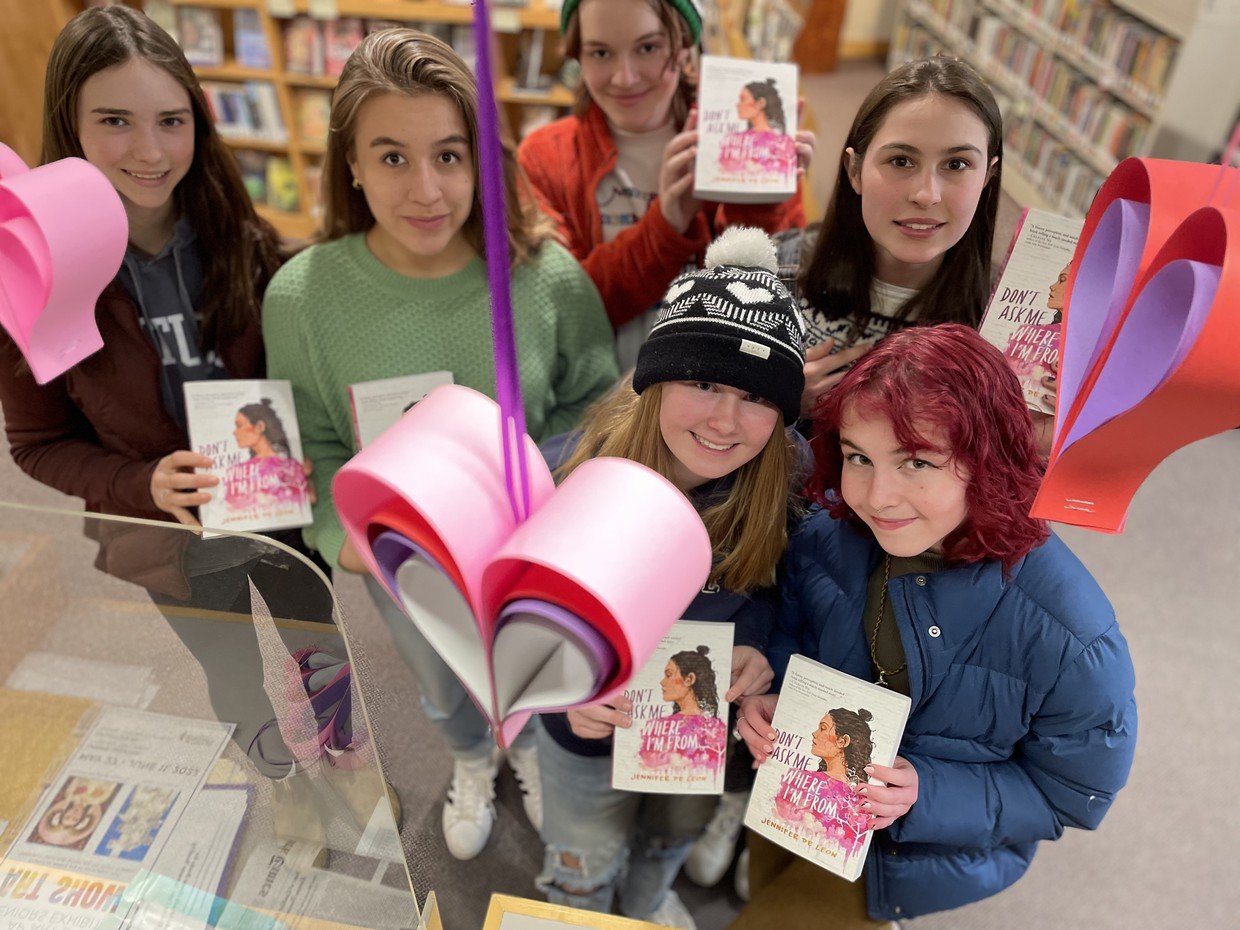Library, media, and technology
Access to information is vital for teaching and learning at WUHSMS.
Technology tools prepare our students for both learning now in school and for careers beyond. Each year, every student is issued a Chromebook. Through the meaningful use of technology our students learn ways to be skilled information processors, collaborative workers, effective communicators, self-directed learners, and responsible citizens.
The Rhoda Teagle Library
There is a wealth of print and digital resources available in the Rhoda Teagle Library. These resources include a collection of 17,000 books, access to InfoTrac (a magazine and newspaper database), subscriptions to online resources.
The library provides curriculum support and materials to students, staff and teachers.
It also promotes reading, discussion skills and critical thinking skills through programs for our school community including the Young Adult Diverse Books Book Club, Faculty/Staff Book Club, author visits, and participation in the state-wide Vermont Reads program.
Students are encouraged to take on responsibilities in the library through the adopt a shelf program which promotes collection care and collection development.
Students also have the opportunity to participate in annual events such as the Teen Lit Mob with nationally recognized Young Adult authors.
Innovation Lab
The Innovation Lab is a place where students grow their spirit of innovation. Immersed in the design process, students use their curiosity and creativity to explore new ideasand make concepts come to life.
Innovation classes at WUHSMS are inspired by cutting-edge research and the vibrant technology & design industries. Designed in collaboration with NuVu Studios in Cambridge, MA, students work on real-world interdiscipnary projects and develop creative problem-solving skills, while gaining valuable knowledge and technical skills along the way.
In each class, students develop their own innovative solutions to complex problems, as well as the fabrication techniques to realize their ideas, from analogue prototyping to digital tools, including 3D printing, lasercutting, electronics and more. Students participate in the iterative design process, including researching, interviewing, brainstorming, ideating, conceptualizing, designing, and making. By engaging in this process, students develop essential collaboration, communication, and presentation skills.
In the Innovation Lab, students have:
Designed unique occupational therapy devices for High Horses, a therapeutic riding program that use horses to connect the rhythm of the horse's gait and movement to therapeutic sessions that increase the rider's sense of freedom and independence.
Addressed local Vermont environmental concerns and ecological issues with devices that helped a plant or animal fight back against human encroachment from non-anthropocentric point of view.
Designed and constructed prototypes for emergency shelters for future exploration on Mars, using the winter in Vermont as their foundation for understanding extreme conditions.


